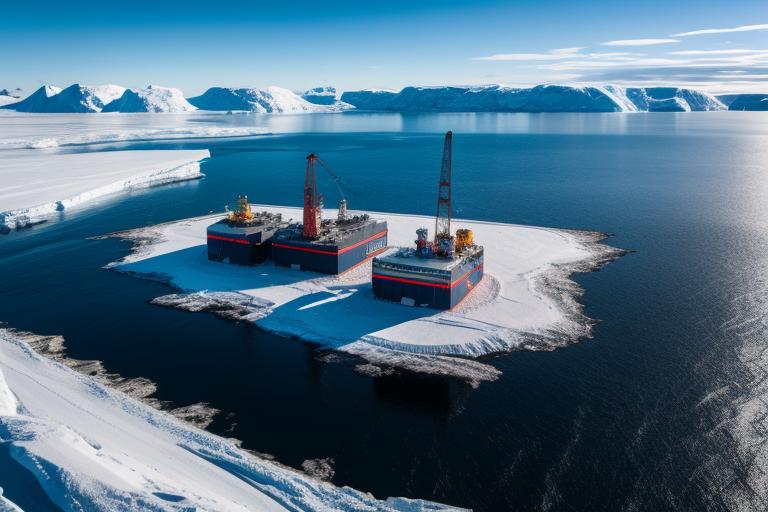Brussels. The Deep Sea Conservation Coalition (DSCC), Environmental Justice Foundation (EJF), Greenpeace, Seas at Risk (SAR), Sustainable Ocean Alliance (SOA) and the World Wide Fund for Nature (WWF) have expressed their appreciation for the adoption of Resolution B9 0095/2024 by the European Parliament regarding Norway’s decision to proceed with deep sea mining in the Arctic. This resolution signifies the increasing opposition to the deep sea mining industry in light of Norway’s recent choice.
The European Parliaments vote in favor of Resolution B9 0095/2024 conveys a message. Highlights significant environmental concerns regarding Norway’s plan to open extensive areas in Arctic waters for deep sea mining operations. The resolution reaffirms the Parliament’s endorsement of a halt. Urges the EU Commission, Member States and all nations to adopt a precautionary approach and advocate for a moratorium, on deep sea mining including at the International Seabed Authority.
Sandrine Polti, Europe Lead for the DSCC, stated, “We very much welcome this resolution by the European Parliament reaffirming its call for a moratorium on this destructive and risky industry before it begins. As momentum grows globally for a moratorium, we call on Norway to reverse its decision before irreversible damage is inflicted on our ocean.”
Anne-Sophie Roux, Deep Sea Mining Europe Lead for the SOA, emphasized, “At present, we lack the robust, comprehensive, and credible scientific knowledge to allow for a reliable assessment of the impacts of deep-sea mineral extraction. Any mining activity would therefore contradict Norway’s commitment to the precautionary approach, sustainable management, and international climate and nature obligations.”
Haldis Tjeldflaat Helle, Deep-Sea Mining Campaign Lead at Greenpeace Nordic, warned, “By opening up for deep-sea mining in the Arctic, Norway is ignoring hundreds of concerned ocean scientists and losing all credibility abroad as a responsible ocean nation. This should be a warning to any government considering going ahead with mining the deep sea.”
The resolution of the Parliament comes after the parliament’s approval, on January 9, 2024, to allow deep sea mining operations in an area of over 280,000 kilometers, which is about the same size as Italy, in the ecologically fragile Arctic region. This decision has sparked widespread concern among the global community, including scientists, the fishing industry, NGOs/civil society, and activists, with a petition garnering over 550,000 signatures to date. The Norwegian Environment Agency has deemed that the strategic environmental impact assessment provided by the Norwegian government does not provide a sufficient scientific or legal basis to open for either deep-sea mining exploration or exploitation.
Kaja Lønne Fjærtoft, the Global No Deep Seabed Mining Policy Lead for WWF International, stated, “The Norwegian government’s decision to open up for deep-sea mining activities bulldozes over recommendations of its own expert bodies, leading scientists, universities, financial institutions, and civil society. As a self-proclaimed ocean leader, Norway should be guided by the science. The evidence is clear – for a healthy ocean, we need a global moratorium on deep-sea mining.”
The resolution passed by the Parliament expresses worries regarding Norway’s intentions to engage in deep sea mining activities and the potential consequences these activities may have on EU fisheries, food security, Arctic marine biodiversity and neighboring countries. Additionally, it highlights concerns that Norway may be violating international laws by not meeting the criteria, for conducting a strategic environmental impact assessment.
Simon Holmström, Deep-Sea Mining Policy Officer at Seas At Risk, emphasized, “Arctic ecosystems are already under immense pressure due to climate change. If deep-sea mining is permitted to proceed, it could disrupt the world’s largest carbon sink – the deep sea – and cause irreversible and permanent loss of marine biodiversity within and beyond Norwegian waters. We cannot let that happen.”
To date, 24 countries globally, including 7 EU countries, are calling for a moratorium or pause on the industry. Multinational companies such as Google, Samsung, Northvolt, Volvo, and BMW have pledged not to source any minerals from the seabed. Reports continue to highlight that metals found in the deep sea are not needed and will only provide limited financial benefits to a select few, countering the claims of profit-driven deep-sea mining companies.
Martin Webeler, Deep-Sea Mining Campaign Lead for the Environmental Justice Foundation, added, “Deep-sea mining is not needed for the green transition. Destroying nearly pristine ecosystems will not halt biodiversity loss and will not help us solve the climate crisis – it will make them worse. We need a serious rethink: full implementation of the circular economy and the overall reduction of demand for minerals must finally become our guiding principle.”
The European Parliament’s approval of Resolution B9 0095/2024 shows that there is a shared worry regarding the effects of deep sea mining, in the Arctic. As a result, a call has been made to halt this industry. The worldwide opposition, against deep sea mining is growing stronger, underscoring the significance of managing and taking measures to safeguard our oceans.
source link eu news











